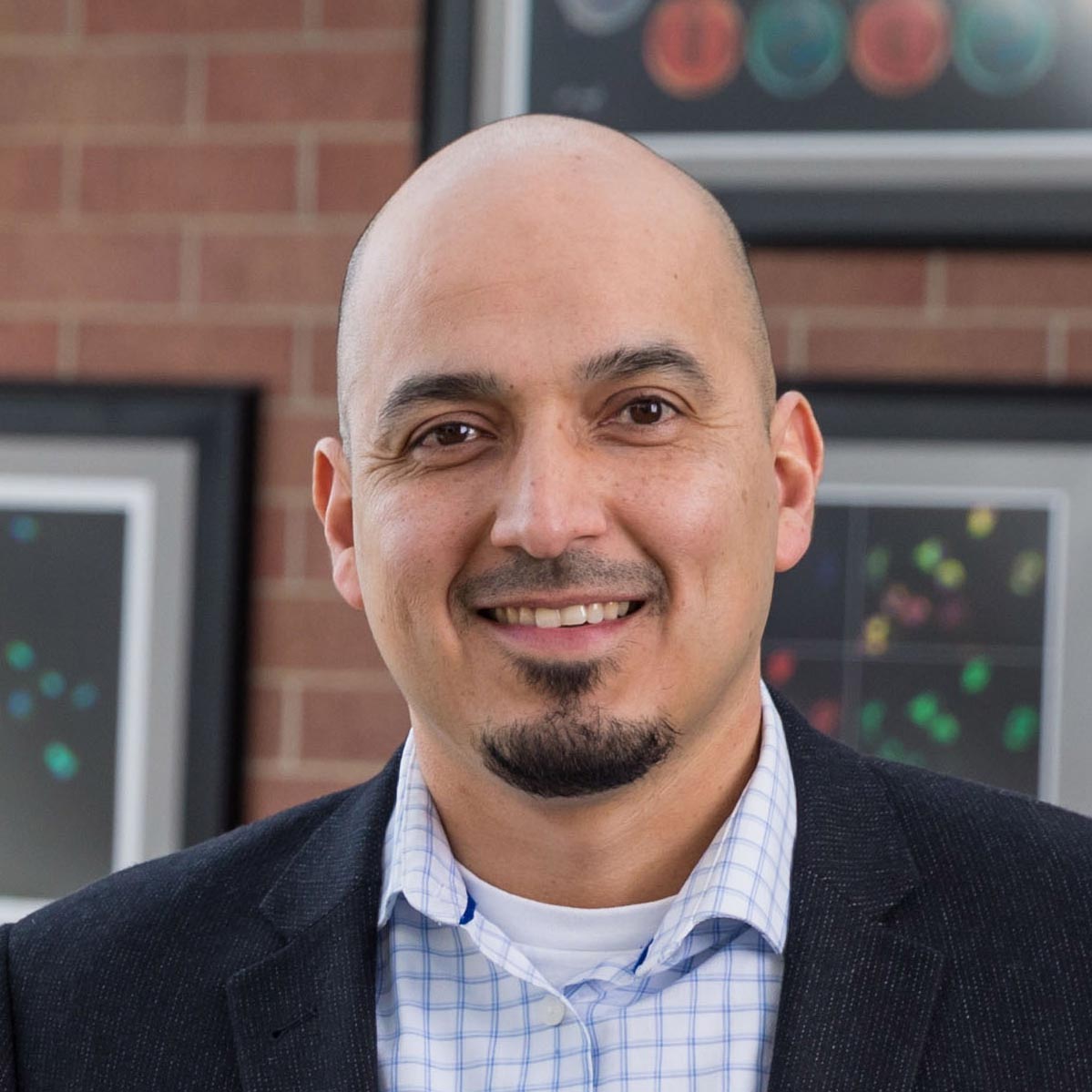Jaime Lopez-Mosqueda
- Assistant Professor
- Molecular Biosciences
- Interdisciplinary Life Sciences Graduate Programs

Contact Information
Biography
Jaime Lopez-Mosqueda obtained his PhD from the University of California, San Francisco, working in the lab of David Toczyski at the UCSF Helen Diller Family Comprehensive Cancer Center. His PhD work focused on studying the block to late origin firing during replication stress conditions in Saccharomyces cerevisiae. This line of work revealed that the intra-S-phase checkpoint negatively regulates pre-initiation complex formation at late origins of replication. He then moved to Frankfurt, Germany to complete a postdoctoral fellowship in the lab of Ivan Dikic at the Institute of Biochemistry II, Goethe University Medical School. Here he investigated the function of the zinc metalloprotease, SPRTN, in normal cells as well as in cells derived from Ruijs-Alfs syndrome patients. This line of investigation let to the discovery that SPRTN is critically important for the repair of DNA-protein crosslinks, and this function is compromised in patients with mutations in the SPRTN gene. In addition to DNA repair, Jaime investigated how linear ubiquitin (Met1-Ub) chains regulate cell death pathways during chronic inflammation.
In 2017, he joined the Department of Biology and Microbiology at South Dakota State University as an Assistant Professor in Cell Biology. In 2023, he moved his lab to the University of Texas at Austin and joined the faculty at the Department of Molecular Biosciences. His current research focus is to understand the molecular and biochemical mechanisms underlying DNA-protein crosslinks. The lab uses a variety of methods and model systems including budding yeast, mammalian cells and animal models to gain insight into this research area. His work has obtained funding from the National Science Foundation, the National Institutes of General Medicine (NIH) and the U.S Department of Agriculture.
Research
Jaime Lopez-Mosqueda obtained his PhD from the University of California, San Francisco, working in the lab of David Toczyski at the UCSF Helen Diller Family Comprehensive Cancer Center. His PhD work focused on studying the block to late origin firing during replication stress conditions in Saccharomyces cerevisiae. This line of work revealed that the intra-S-phase checkpoint negatively regulates pre-initiation complex formation at late origins of replication. He then moved to Frankfurt, Germany to complete a postdoctoral fellowship in the lab of Ivan Dikic at the Institute of Biochemistry II, Goethe University Medical School. Here he investigated the function of the zinc metalloprotease, SPRTN, in normal cells as well as in cells derived from Ruijs-Alfs syndrome patients. This line of investigation let to the discovery that SPRTN is critically important for the repair of DNA-protein crosslinks, and this function is compromised in patients with mutations in the SPRTN gene. In addition to DNA repair, Jaime investigated how linear ubiquitin (Met1-Ub) chains regulate cell death pathways during chronic inflammation.
In 2017, he joined the Department of Biology and Microbiology at South Dakota State University as an Assistant Professor in Cell Biology. In 2023, he moved his lab to the University of Texas at Austin and joined the faculty at the Department of Molecular Biosciences. His current research focus is to understand the molecular and biochemical mechanisms underlying DNA-protein crosslinks. The lab uses a variety of methods and model systems including budding yeast, mammalian cells and animal models to gain insight into this research area. A second line of investigation in the Lopez lab is focused on deciphering how adverse cellular conditions modulates NF-kB signaling to promote cell death and inflammation.
Research Areas
- Health Promotion or Disease Prevention
Fields of Interest
- Molecular Biology, Genetics & Genomics
- Cell and Developmental Biology
- Biochemistry
Publications
Awards
- NSF Career Award Recipient
